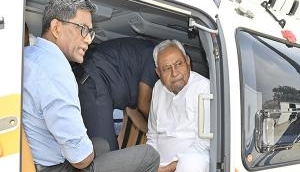Copyright: why selling photocopied books to students isn't exactly a social service

Copyright in the context of higher education has returned to the spotlight after the Delhi High Court dismissed a suit brought by three big academic publishers against a photocopier at Delhi University.
Without entering the legal complexities of the nature of various rights that need or don't need to be defended, it is important to examine some general and critical issues that have been raised in this context.
Also Read: Copyright versus wrong: who's really to blame for illegal music downloads?
An important issue highlighted in the media is that students at premium higher education institutions such as the Delhi School of Economics are required to read extensively, but many of them cannot afford to buy the numerous textbooks and journals that are part of their reading list. Thus, a shop that photocopies relevant pages from such books, binds them in "study packs" and sells them to students is serving an essential educational and social function that cannot and should not be constrained by apparently minor and irrelevant matters of copyright.
This assertion is, at the very least, singularly disingenuous.
A principal objective of higher education used to be to train the mind to think clearly and logically, and to sift through large amounts of information quickly and separate the academic wheat from the chaff efficiently.
This was done largely by reading extensively and intensively in libraries, which provided not only all the books and journals required, and more, but also a quiet atmosphere conducive to academic effort. No student that I knew during my two years at the Delhi School of Economics ever bought any academic books or subscribed to any journals. We spent a lot of time in the Ratan Tata Library reading and taking notes, fortifying ourselves frequently with coffee and cigarettes from the coffee house located just outside.
Unless the libraries of the Delhi University have closed down, it is hard to accept the argument that students desirous of quality higher education need photocopied "study packs" to help in their endeavours.
Moreover, it can be argued, in an admittedly old fashioned way, that quick fixes are not the best way to educating oneself. The effort of reading through four hundred pages and reducing them to two pages of notes was part of the education, a necessary part in fact. Students who do not have the time or the inclination to sit and work in a library are not really looking for quality education, just a high-profile stamp that will buy them entry into a desirable position with minimum effort. The motivation here is not really high-minded enough to warrant defence from serious educationists.
Also Read: Delhi University's bright young educators face an uncertain future
The other issue that needs to be debated is the portrayal of the matter as a fight between the rich Goliath of publishers and the poor knowledge-hungry David of students. Ideally, knowledge and quality education should be free and it's with this objective that the "public good" of higher education should be provided by the state at minimal cost. In the case of the Delhi University and the Delhi School of Economics, this is exactly as it should be.
The many wonders of the Ratan Tata Library are available to all registered students of DSE at negligible cost. The Big Bad Publisher and his expensive books are not a barrier to education; there is an intermediary - a state-funded university and library that insulate the students from the expense but not the effort of sitting down and working long hours.
Lastly, as any wannabe author will confirm, it is useful to be monetarily compensated for one's work; the labourer is worthy of his hire and the author of his royalty. While one would like royalty rates to improve in favour of authors, 10% of something is better in these hard times than nothing at all. If it is somehow inappropriate for authors to be paid royalty - and photocopiers have to be encouraged in the interest of 'quality higher education' -- why are teachers paid substantial salaries by universities?
The material question, regrettably, pervades all dimensions of human endeavour equally.
Also Read: New education policy wants to restrict campus politics, increase budget






![BJP's Kapil Mishra recreates Shankar Mahadevan’s ‘Breathless’ song to highlight Delhi pollution [WATCH] BJP's Kapil Mishra recreates Shankar Mahadevan’s ‘Breathless’ song to highlight Delhi pollution [WATCH]](https://images.catchnews.com/upload/2022/11/03/kapil-mishra_240884_300x172.png)

![Anupam Kher shares pictures of his toned body on 67th birthday [MUST SEE] Anupam Kher shares pictures of his toned body on 67th birthday [MUST SEE]](https://images.catchnews.com/upload/2022/03/07/Anupam_kher_231145_300x172.jpg)






